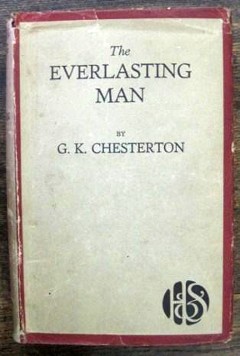 First edition | |
| Author | G. K. Chesterton |
|---|---|
| Genre | Christian apologetics |
| Publisher | Hodder & Stoughton |
Publication date | 1925 |
The Everlasting Man is a Christian apologetics book written by G. K. Chesterton, published in 1925. It is, to some extent, a deliberate rebuttal of H. G. Wells's The Outline of History , disputing Wells's portrayals of human life and civilisation as a seamless development from animal life and of Jesus Christ as merely another charismatic figure. Chesterton detailed his own spiritual journey in Orthodoxy , but in this book he tries to illustrate the spiritual journey of humanity, or at least of Western civilisation.